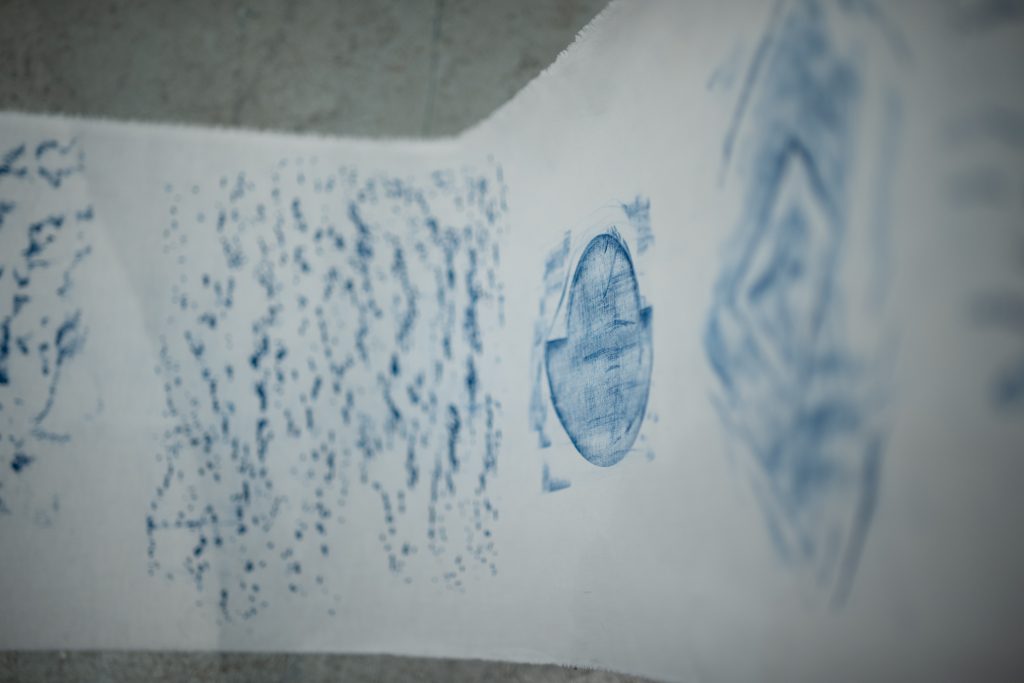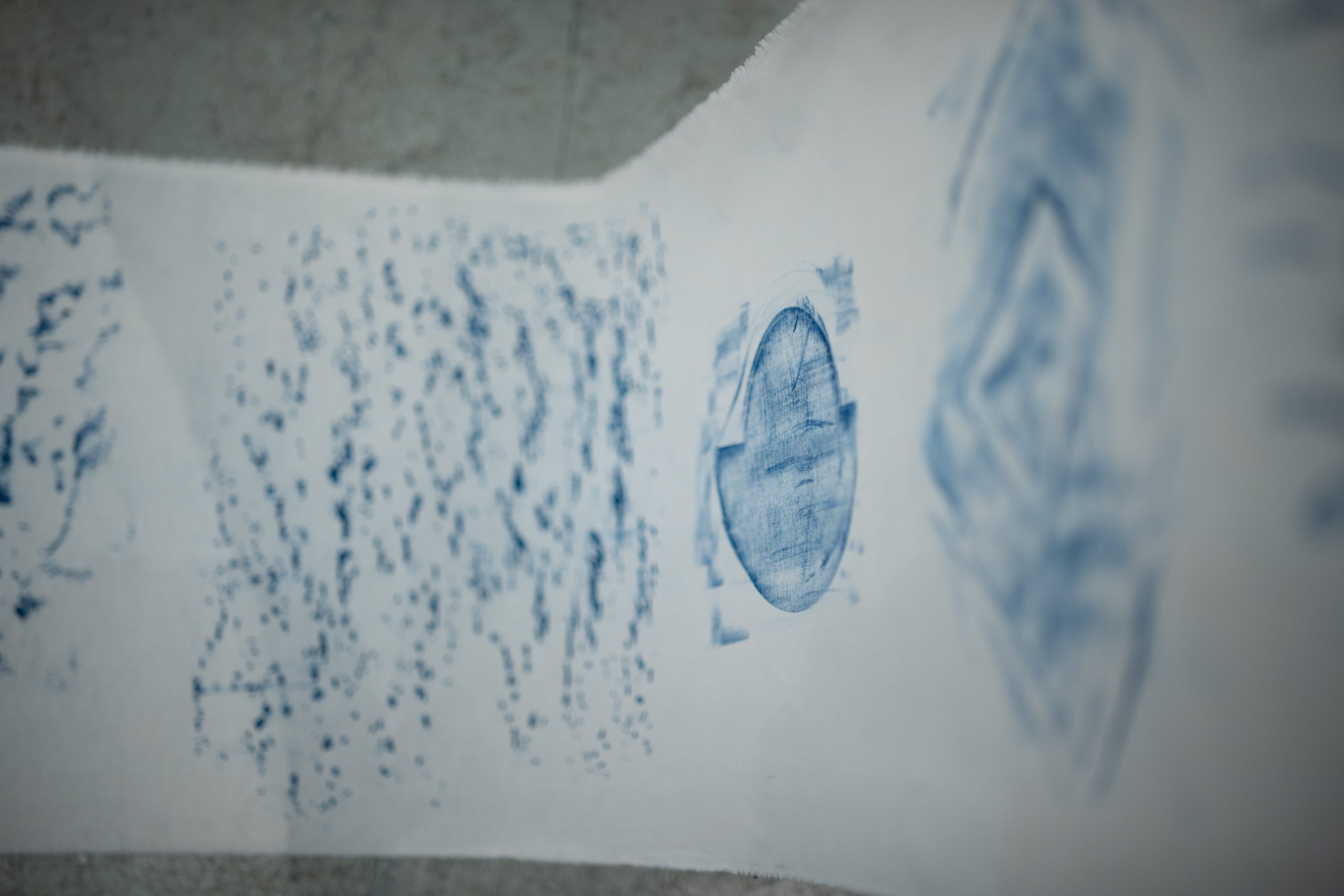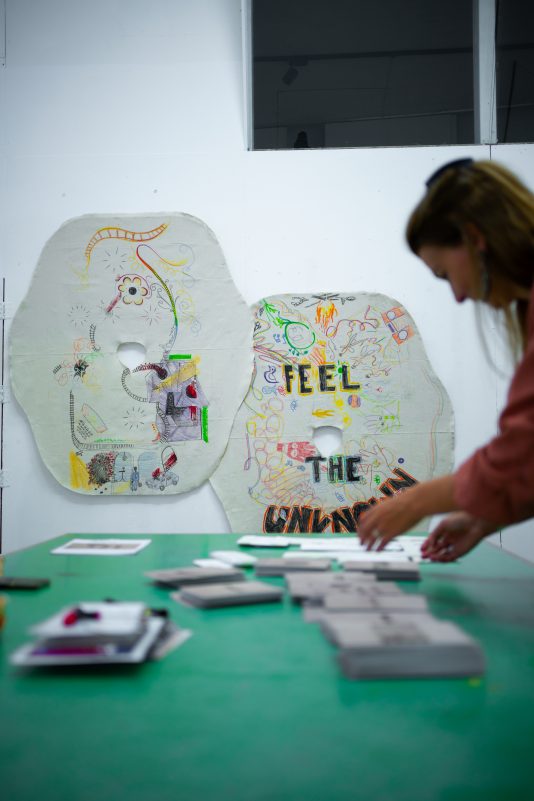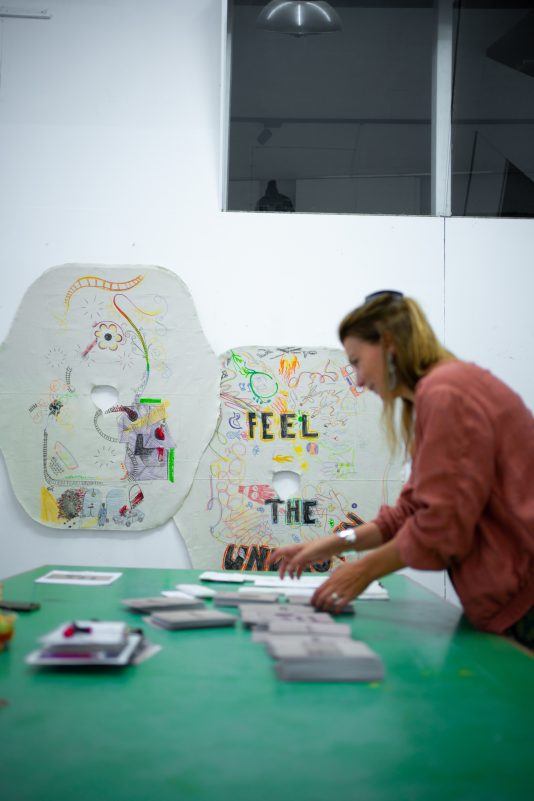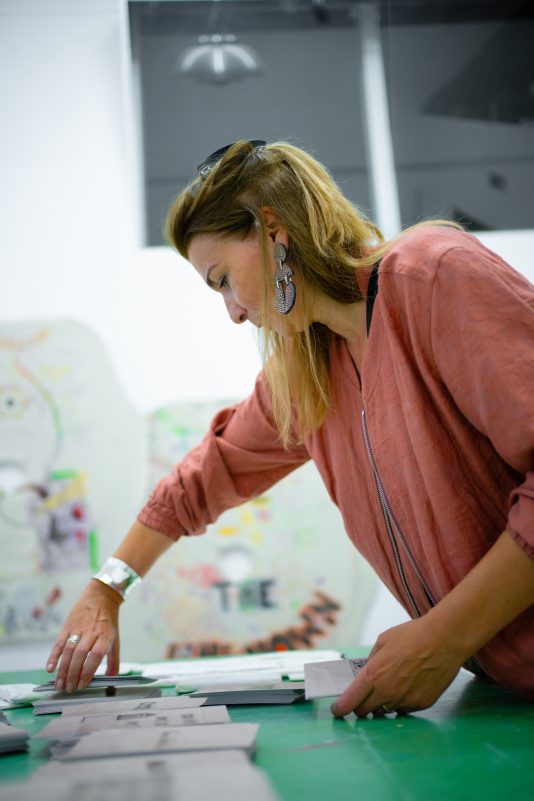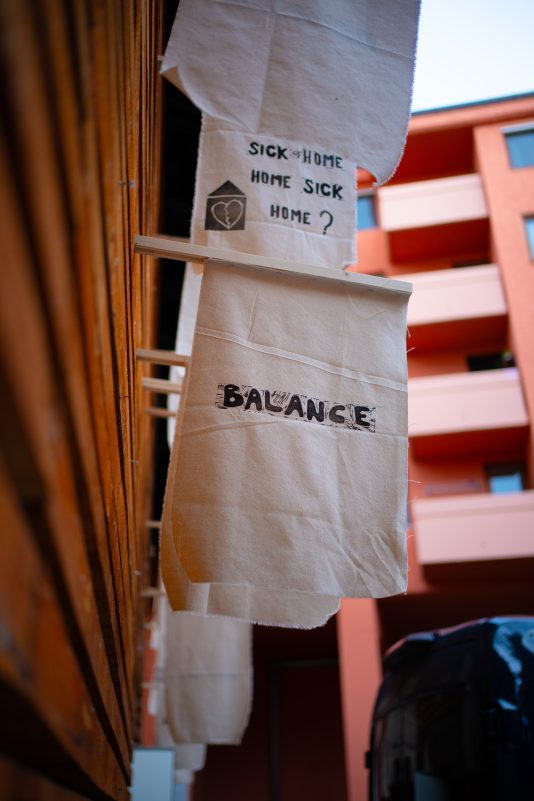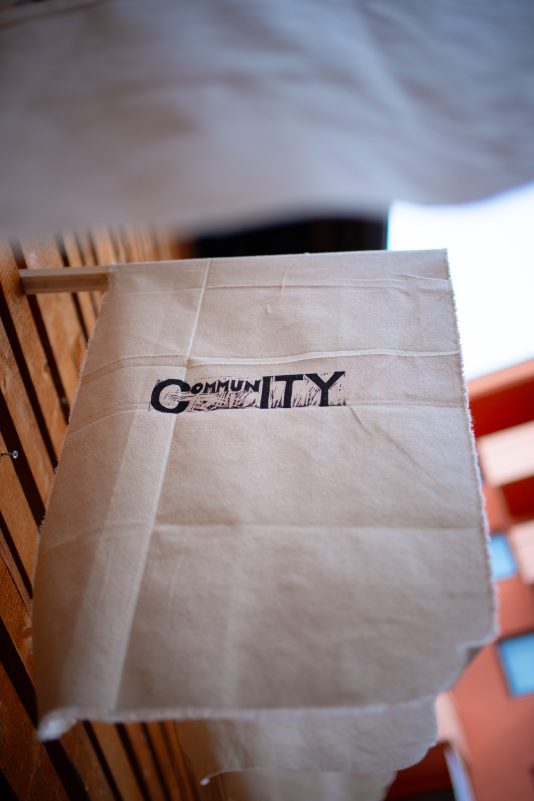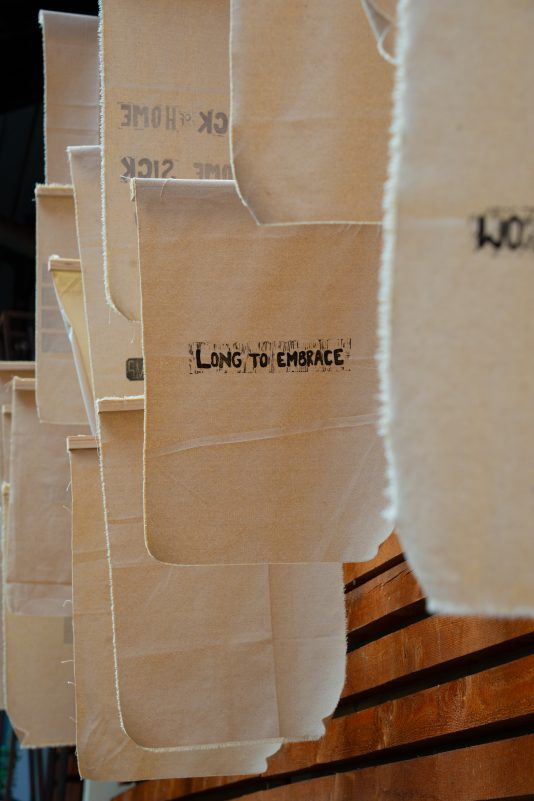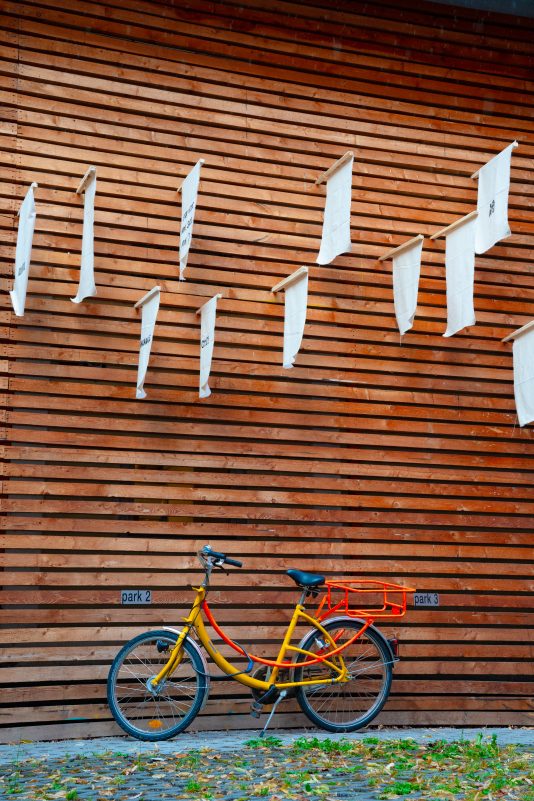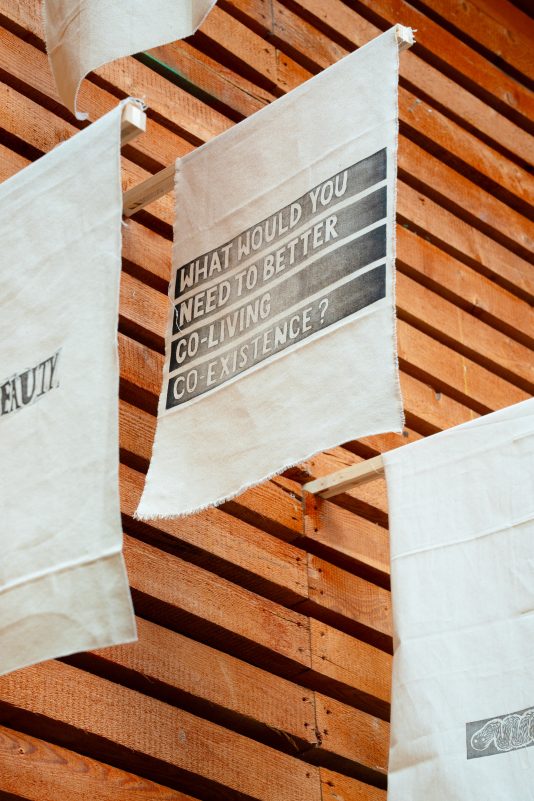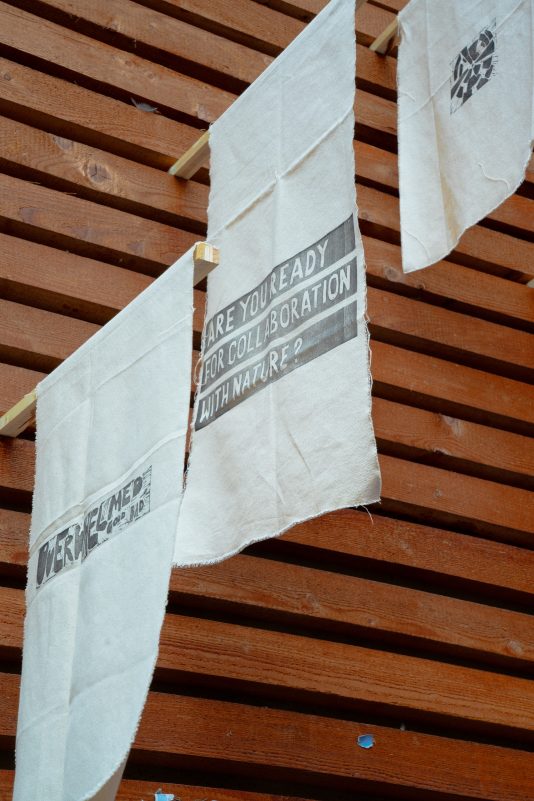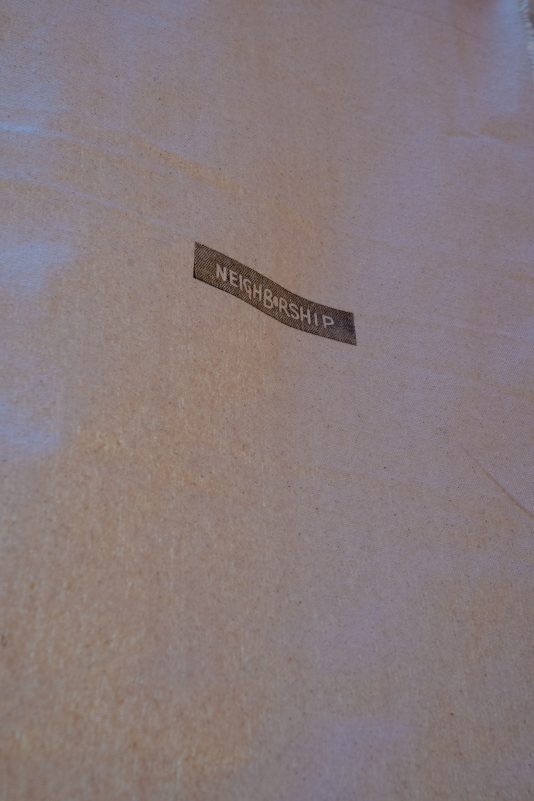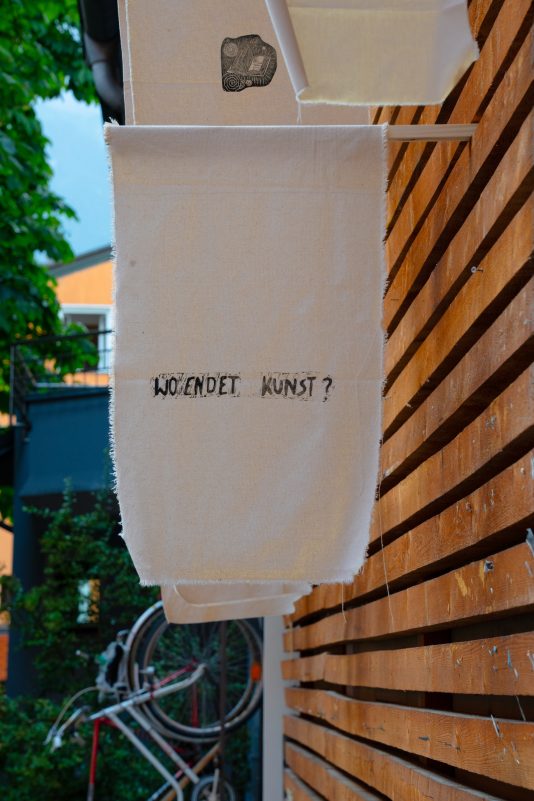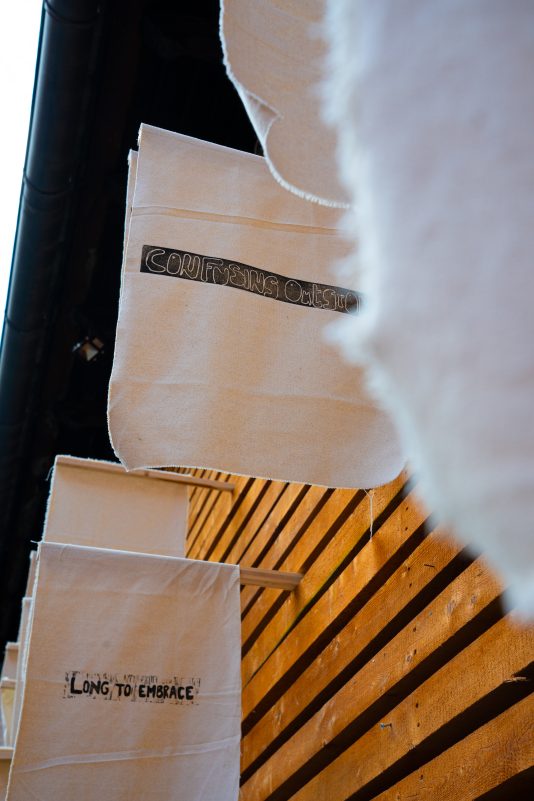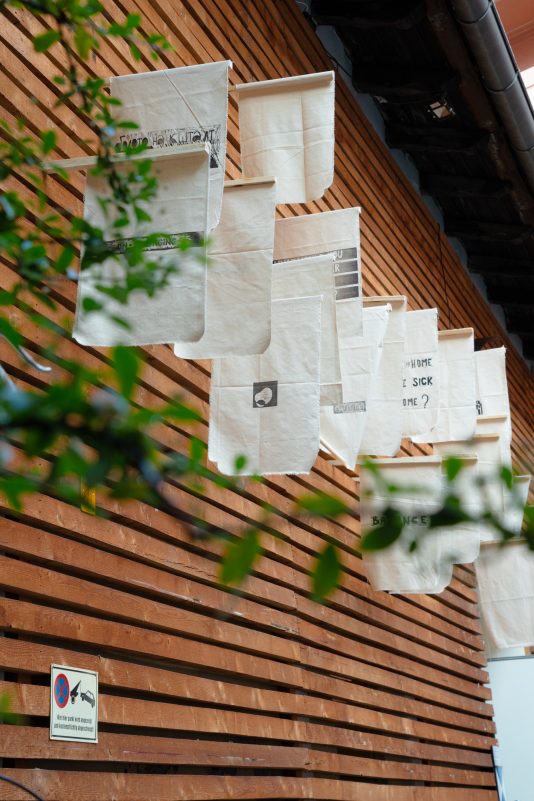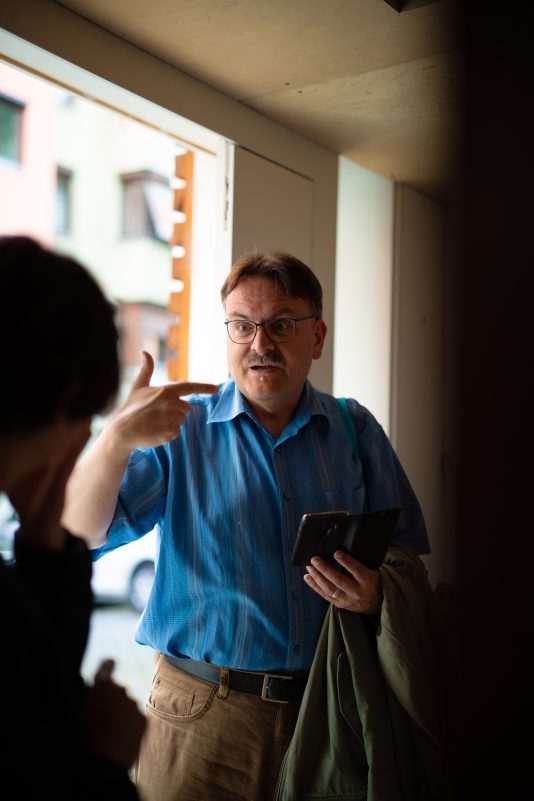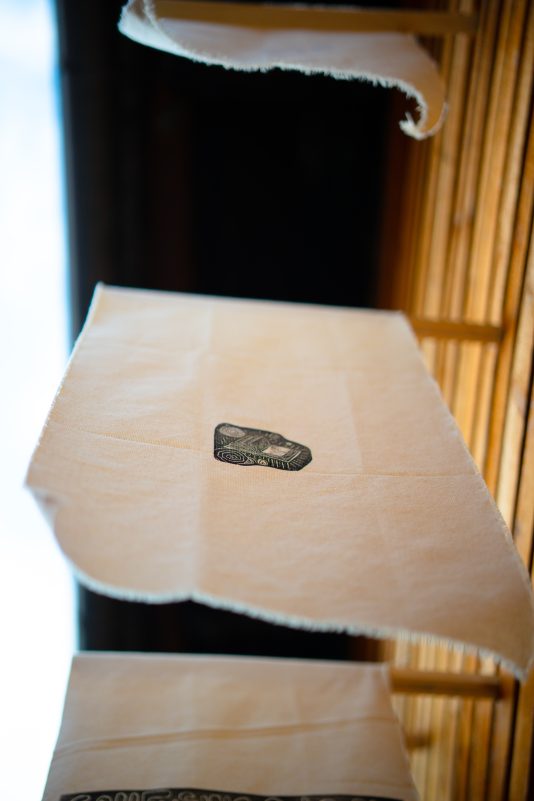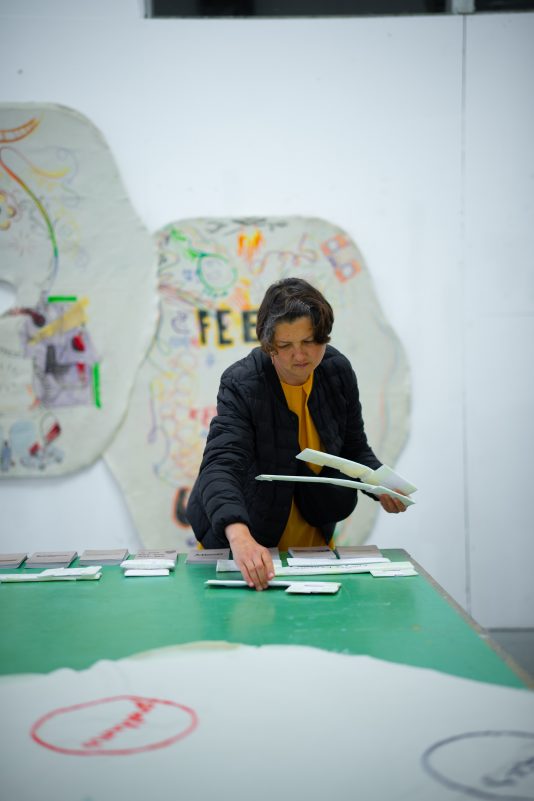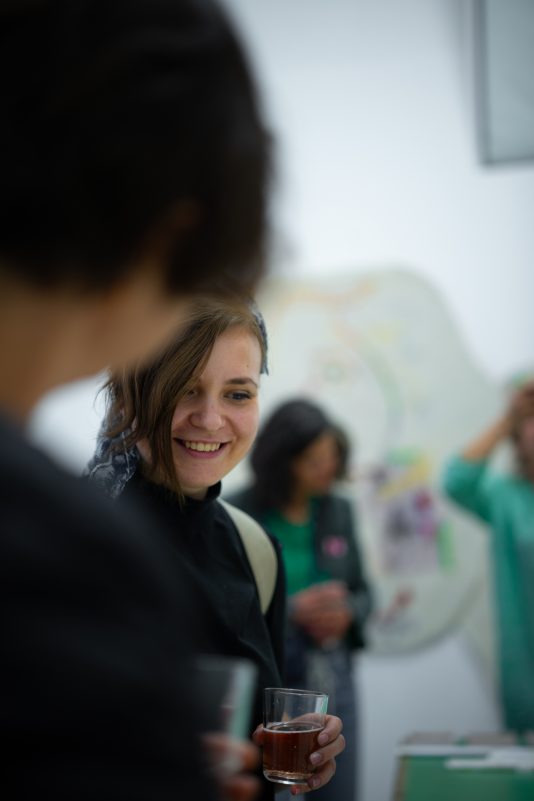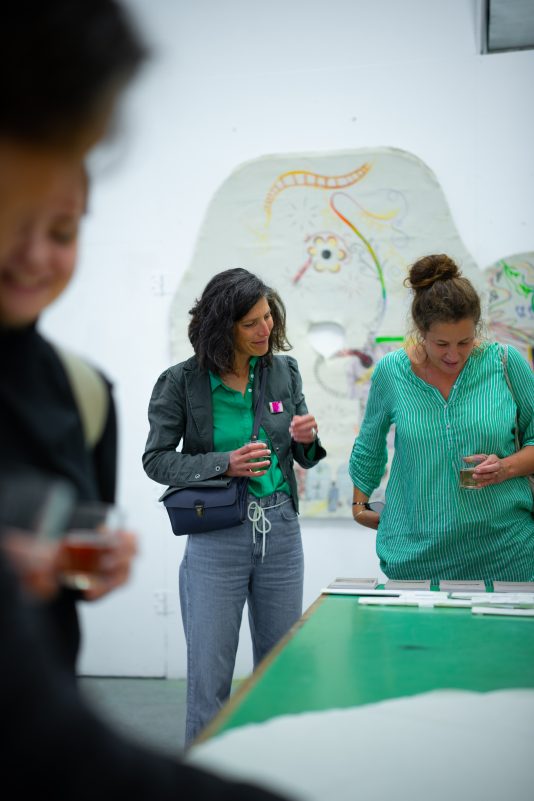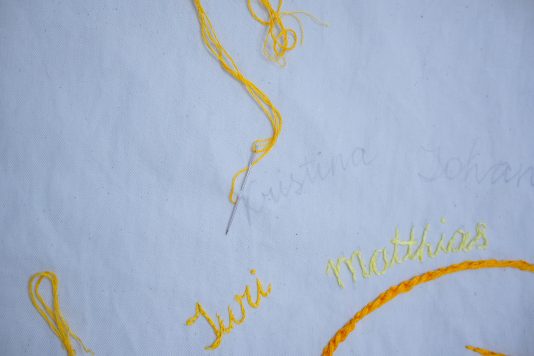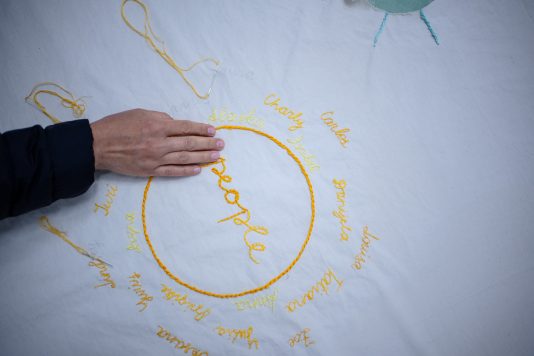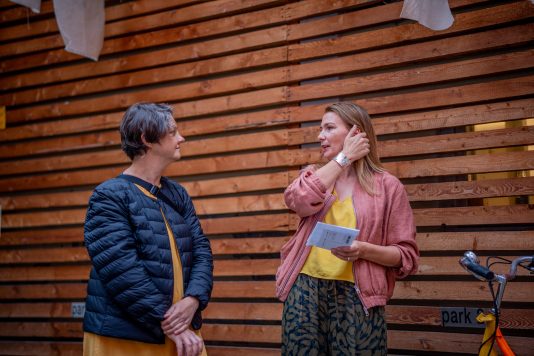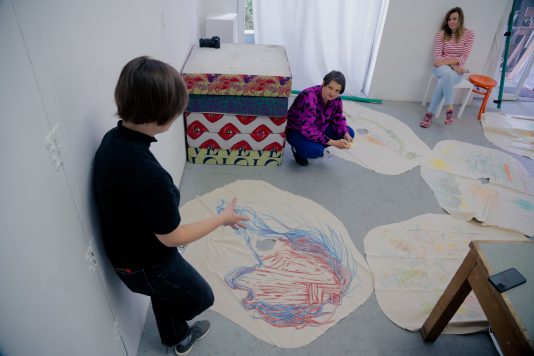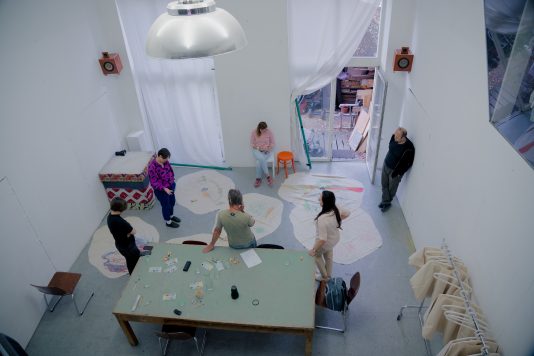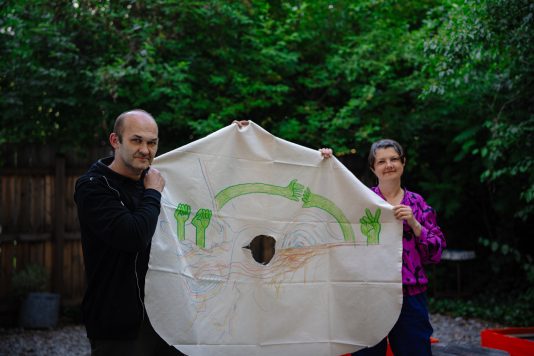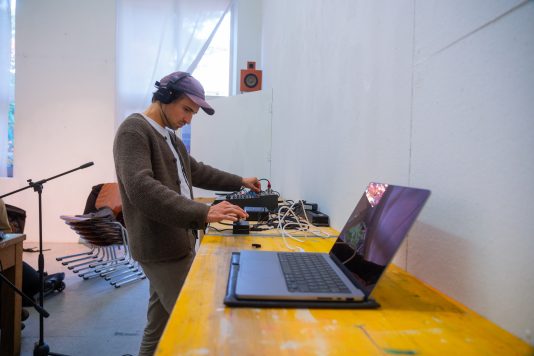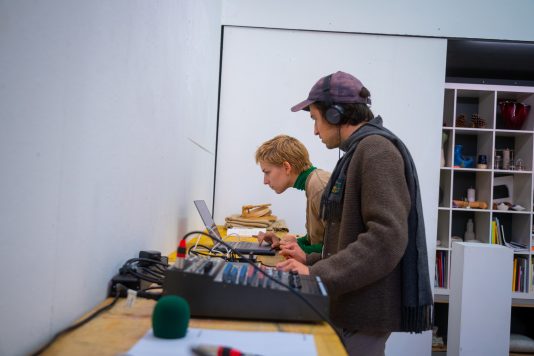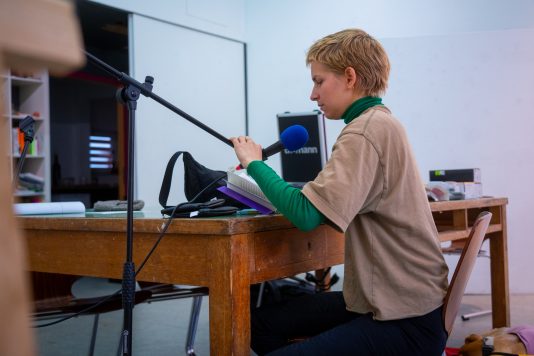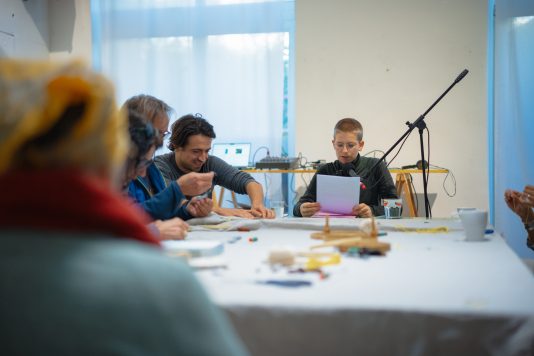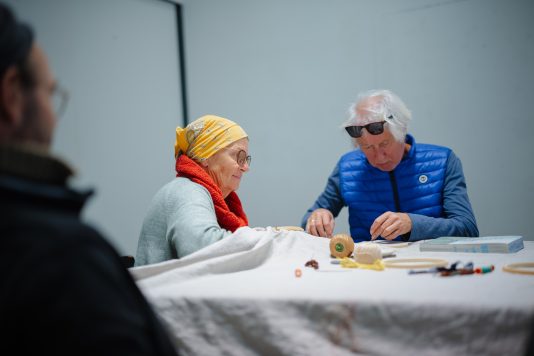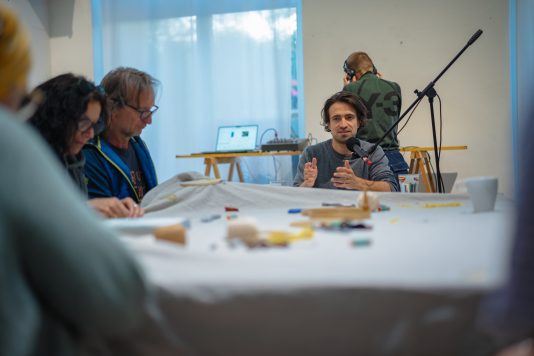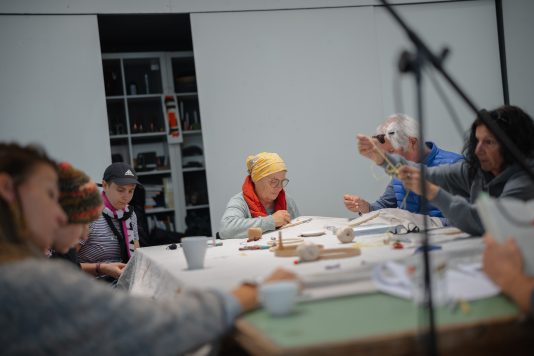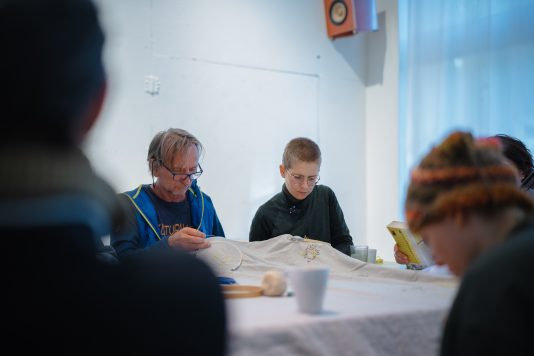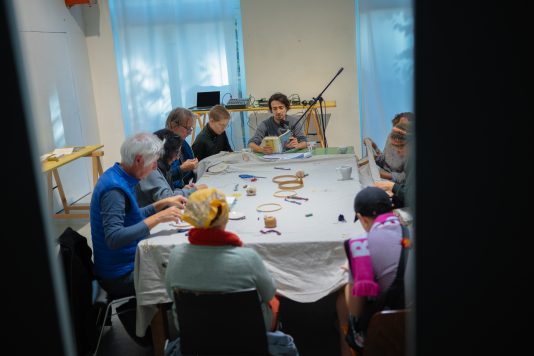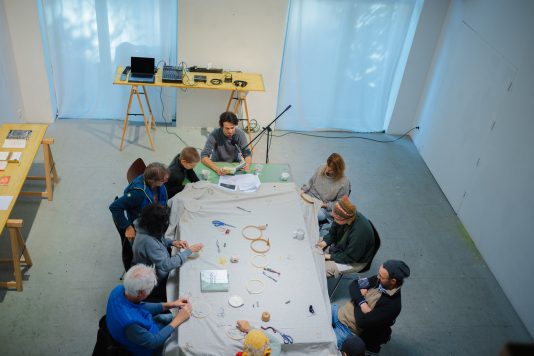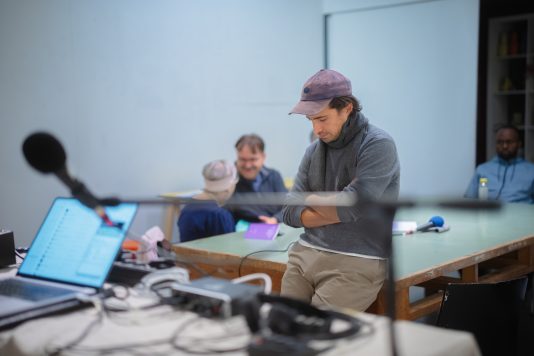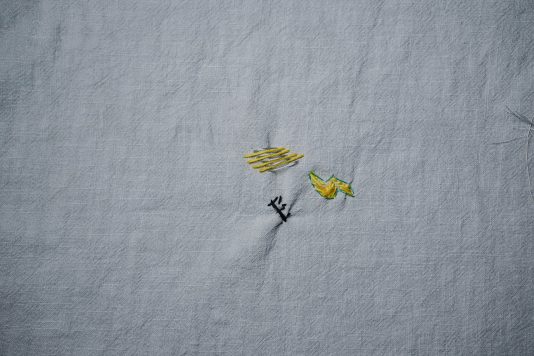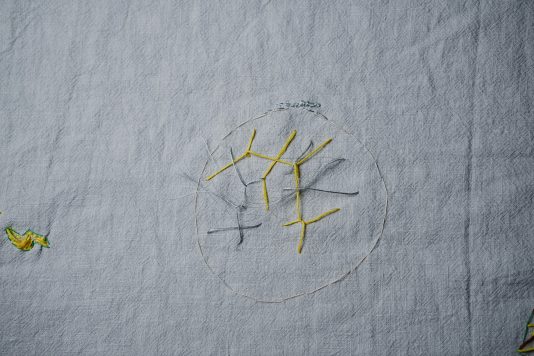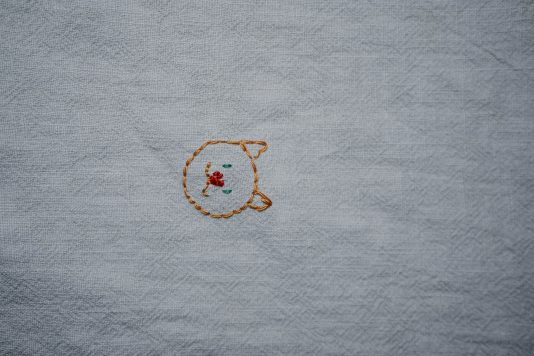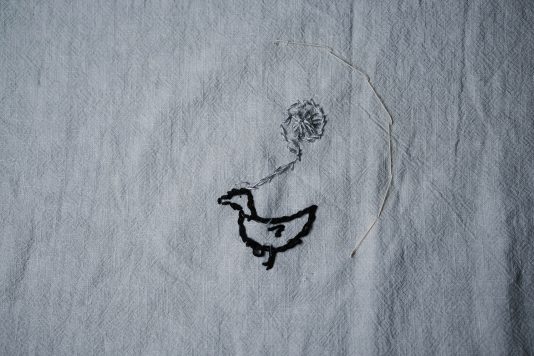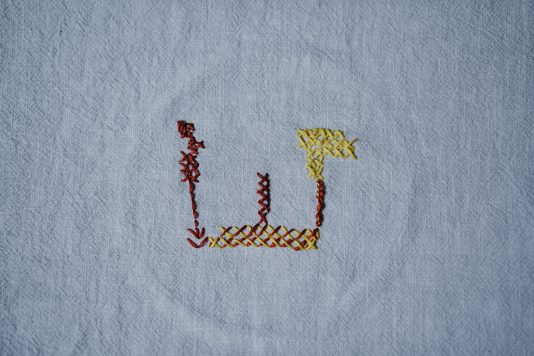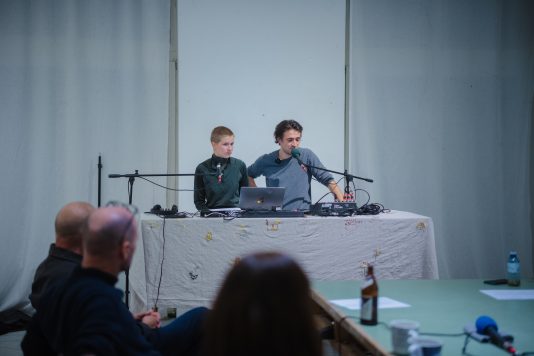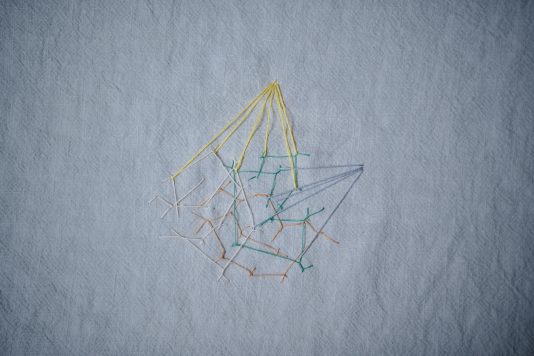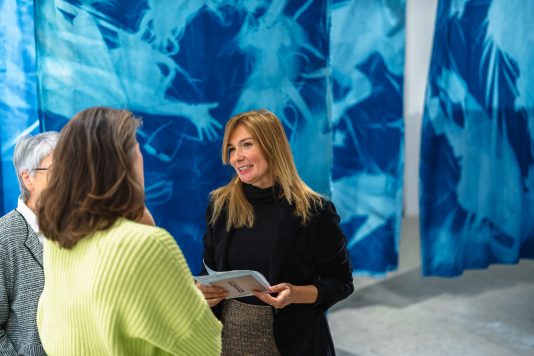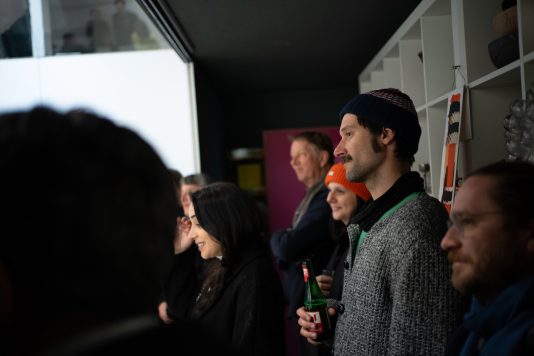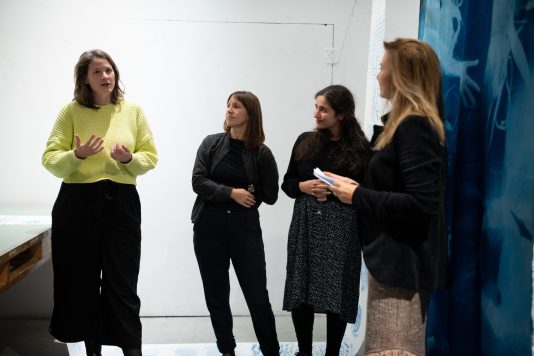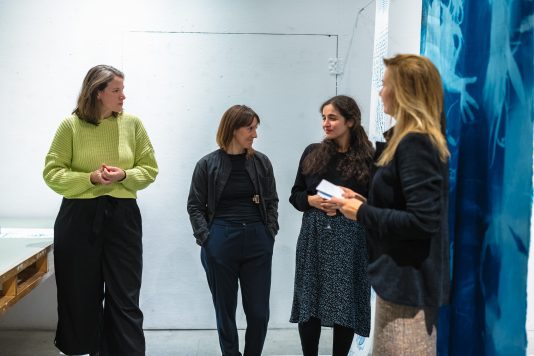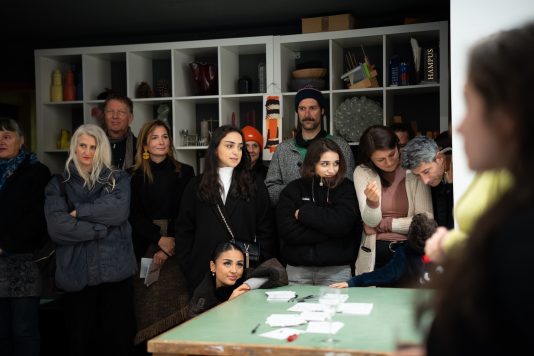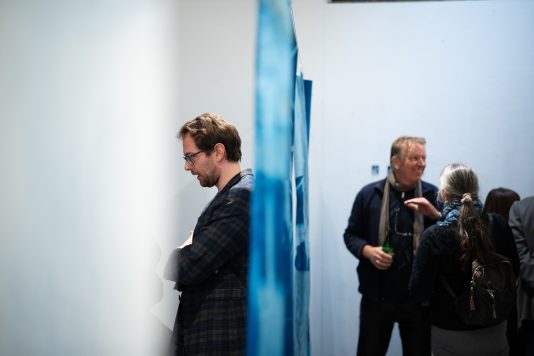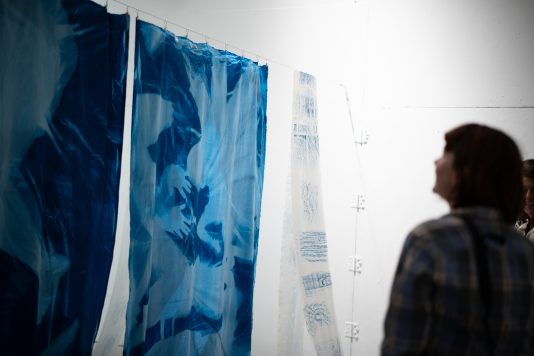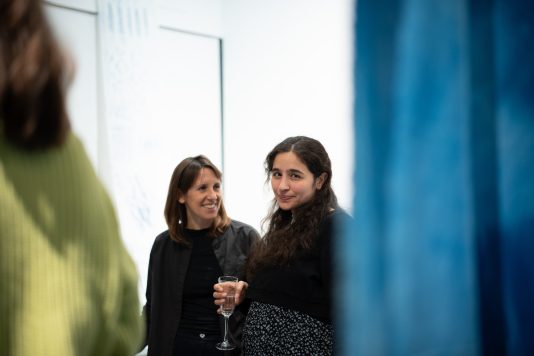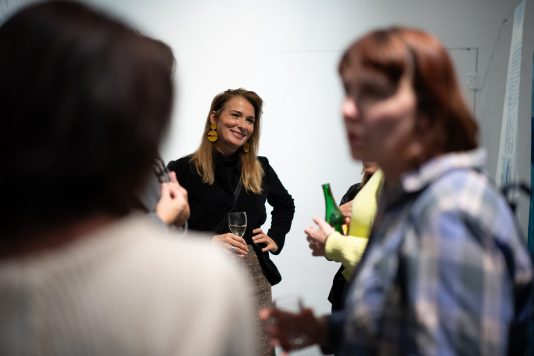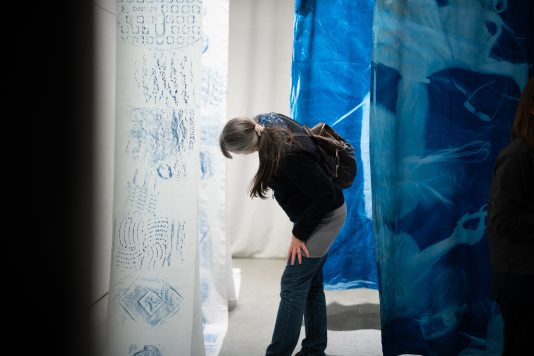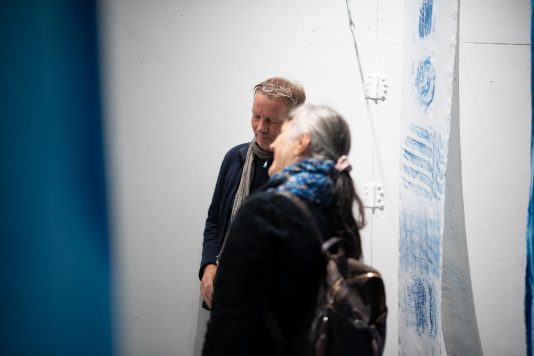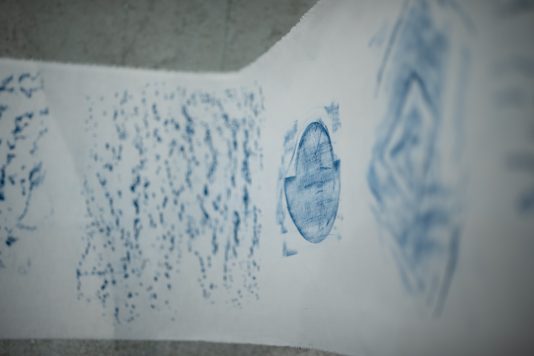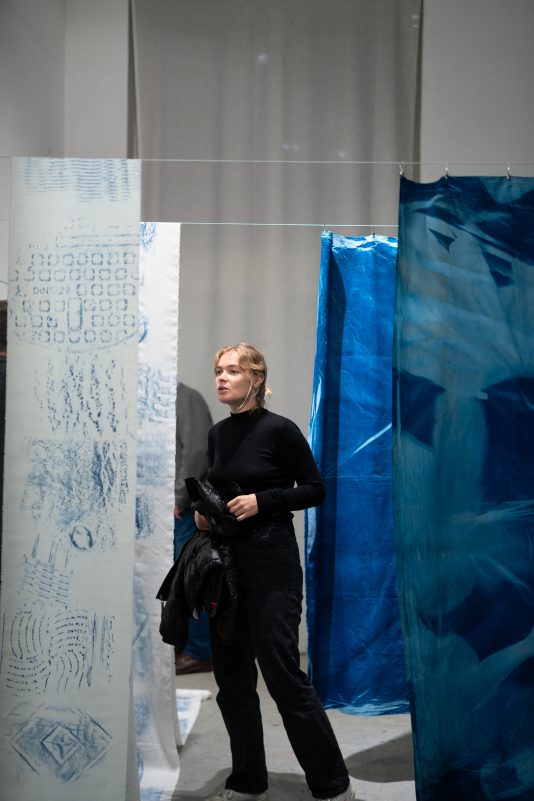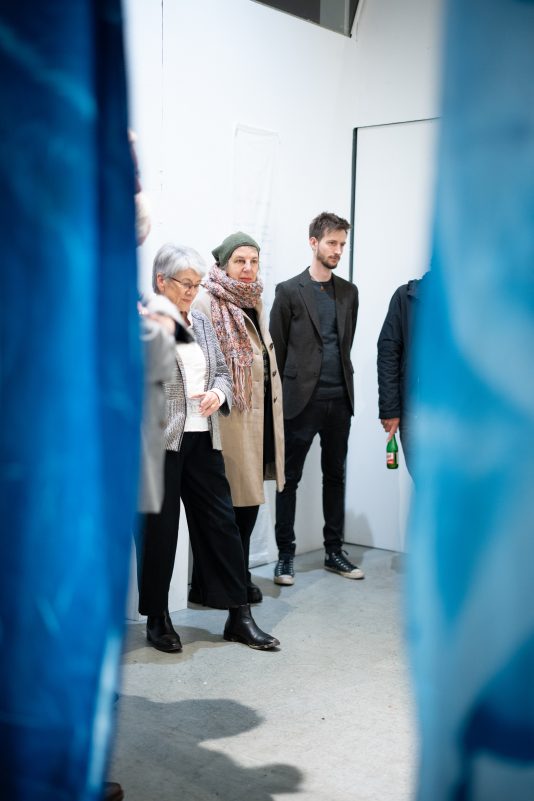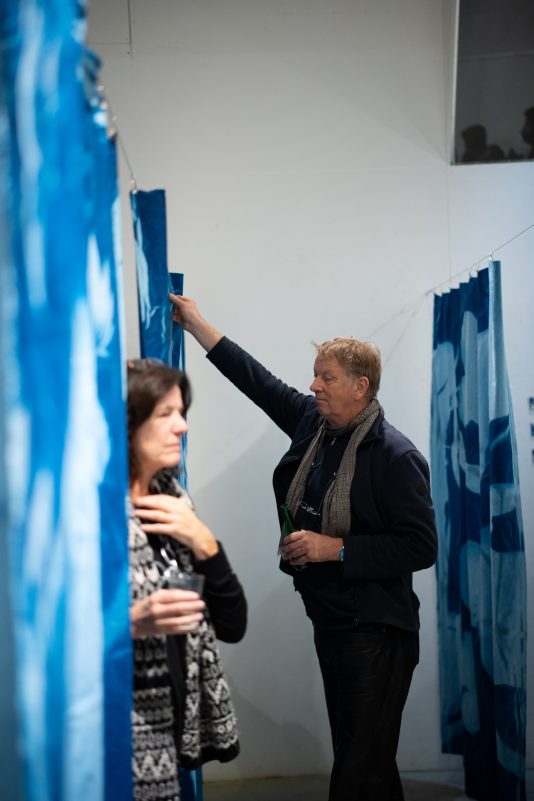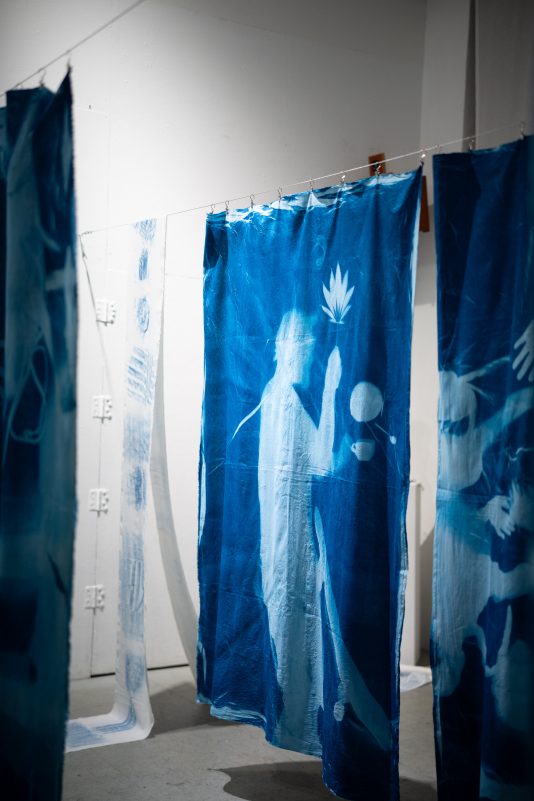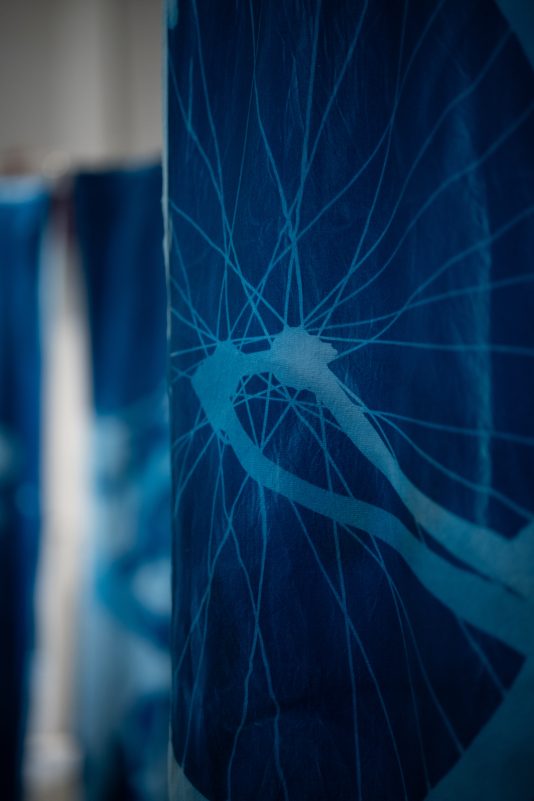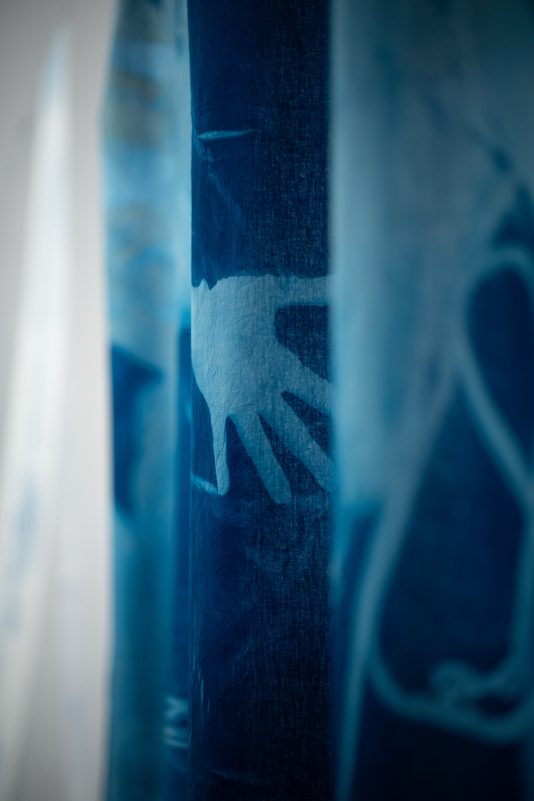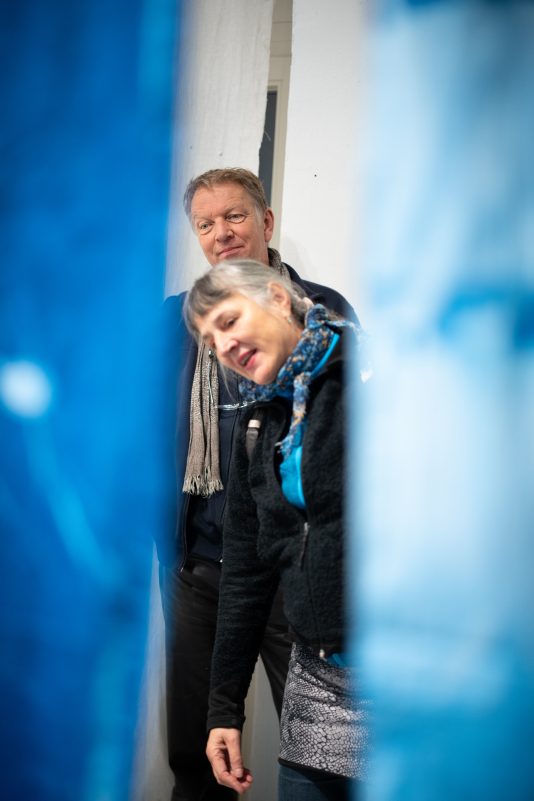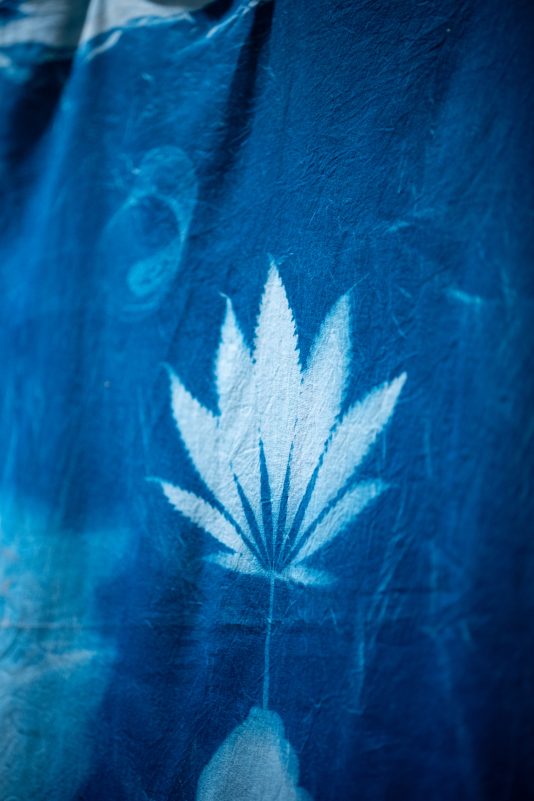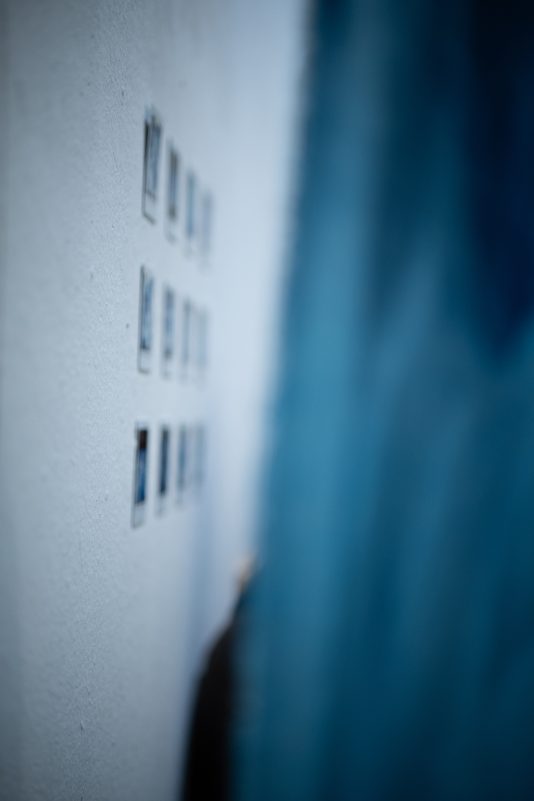International Artists in Focus: Yulia Kostereva and Yuriy Kruchak/ Open Place from Kyiv, Ukraine
Local Artist in Focus: Artistic duo Johannes Reisigll and Juri Velt
Other joined local artists: Studio Fundus collective
In 2023, openspace transformed into a “space” where inner landscapes and the world within converged with outer landscapes and the world around. We felt, saw, listened, and touched; we created images and structures. Roads and paths, rivers and trees, people and animals, the sun and the moon, and the heavy rain of rockets, bullets, challenging experiences, and human or identity crises filled this layered terrain with thoughts, emotions, and various internal reflections on the events in the outside world. We explored spaces, opening the rooms where we were hurt, and visualized our most treasured places. In its essence, we saw beauty – in individuality and commonness.
With a diverse selection of artists, their amalgamation of extensive knowledge, artistic practices, and participatory methodologies, along with new learning formats based on a non-hierarchical approach, fostered an atmosphere of openness and motivation to explore the inner and outer worlds together. Participants were invited to express themselves artistically, to learn, and to co-create something larger and shared.
So many narratives converged and were understood, interwoven in openspace this year. Allow me to introduce you to the three main stations of the project.
Common Landscape by Open Place from Ukraine
Collaboration with Kunstraum Innsbruck, Office Ukraine, Ukrainian Institute, Jam Factory Lviv
In the initial phase of the Magic Carpets project year 6, we invited Open Place to Innsbruck – an interdisciplinary platform founded by Ukrainian artists/curators Yulia Kostereva and Yuriy Kruchak, two immensely talented art-workers and valued individuals. They held meetings, conducted joint actions, and proposed potential perspectives on the intersection of art, politics, and socio-cultural transition. Their practice aims to expand the understanding of art, inviting new groups of people into the creative process. During their residency in Innsbruck, Kruchak and Kostereva explored the theme “Common Landscape” as a non-hierarchical structure of relations by engaging with different citizen groups. They encouraged us to think beyond landscape as a set of infrastructural components, revealing its diverse shapes and shades
Migration and challenges arising from migration formed the foundation of Open Place’s research. Migration, viewed as a process of transition fundamental to contemporary life, involves movement between identities, countries, languages, economic realities, genders, political beliefs, and contexts. They interacted with numerous individuals, organizations, platforms, and institutions during their stay in Innsbruck, building connections and listening to stories – from those with a migration background or fleeing wars and severe social/financial crises, to those born or raised in Innsbruck. Beginning with the people of Ukraine, the diverse local Ukrainian organizations rooted in Innsbruck, initiatives providing counseling, support, intervention for refugees, experts from universities dealing with the topic from different perspectives, to our neighbors, fellow citizens, and art-lovers gathered around the openspace venue. Yulia and Yuri created a series of meetings in the format of interviews, workshops, courses, and talks, resulting in a subjective map of Innsbruck during June and July. Importantly, they created a safe space for encounters and exchanges, as well as for sharing practices, thoughts, experiences, stories, and the creation of collective actions.
Within the Summer School program co-curated by Kunstraum Innsbruck and openspace, new learning formats were developed, and exciting artist talks took place. Participants worked with the different semantic layers of the city and its intersections, including objects of material and immaterial memory, people, infrastructures, and activities. Simultaneously, they used drawing and linocut as a means of communication, delving into the histories and theoretical approaches associated with these techniques. In the residency’s final week, landscapes gathered through interviews, daily encounter sessions, community workshops, and the Summer School were intertwined with other narratives, presented in a site-specific installation on the facade of openspace.innsbruck. This was followed by a concluding presentation of the residency’s process-oriented artwork inside the venue. From fabrics and prints to exhibited “aprons” painted/drawn with individual and shared landscapes, to the fabric covering the working-table in a tablecloth manner – an homage to its role as a center/soil of our working, learning, socializing sessions, and everyday life. Yulia began to knit, and other participants – “People” – continued to embroider during the final exhibition.
Thinking about “People” – so many participants were involved in this project on some level – that the power of human networking, connecting, supporting, and recognition is incredible.
We learned a great deal from each other, especially how the practice of art changes in times of war and what art can accomplish in such times. Art is not just about artistic production but about encounters with people, perspectives, and currencies.
The Artist-in-Residency of Yuriy Kruchak and Yulia Kostereva was made possible through the support of Ukrainian Institute, Jam Factory Art Center (Magic Carpets partner organization from Lviv), and Office Ukraine Shelter for Ukrainian Artists together with Kunstraum Innsbruck and openspace as collaboration partners that organized and implemented the program in Innsbruck.
Yuriy Kruchak, a Kyiv-based artist and curator working at the intersection of art and social studies, co-founder of the interdisciplinary platform Open Place, and a laureate of the Gaude Polonia scholarship (2018). His interests include interdisciplinary and post-artistic practices and the intensification of connections between the artistic process and various strata of modern society. Kruchak’s artistic strategies respond to locally specific problems and usually involve engaging different communities in the creative process. When working in public spaces, he transforms the audience into actors, creating a community that interprets and reveals social structures in an urban environment. His work explores the relationship between art and reality, as well as the relationship between the artist and the audience. Yuriy Kruchak studied Scenography at Kharkiv State Art College (1989–1991) and Environmental design at the Kharkiv Art-Industrial Institute (currently Kharkiv State Academy of Design and Arts) (1991–1996). He received a Master’s degree in Painting from the National Academy of Fine Art and Architecture in Kyiv in 1999.
Yulia Kostereva is an artist and curator. In 2001, she graduated from the National Academy of Fine Art and Architecture in Kyiv, Ukraine. Her work often takes the form of installations, objects, and collaborative actions that focus on history and narratives related to a particular place, object, or person. In 1999, together with the artist Yurii Kruchak, she launched the interdisciplinary platform Open Place, which she still maintains today. The platform’s work aims to expand creative research and establish links between artistic processes and different layers of modern society. Art is thereby understood as a space of intersection between artistic, social, and political processes.
Roaming Rumours of Resistance
A Radio Program as Artistic Research by Johannes Reisigll and Juri Velt
Collaboration with Radio Robida and Magic Carpets / openspace. innsbruck
October 2023
As part of the ongoing Magic Carpets cycle, openspace has established a secure environment for artistic experimentation, fostering the cultivation of multiple perspectives to encourage critical reflection and action. This includes the exchange and engagement and development of new (non-hierarchical) learning formats. Following the successful artist residency on the theme of “Common Landscape” by the Ukrainian duo Open Place, another artist duo was active at openspace.innsbruck during October.
“Roaming Rumours of Resistance” is a nomadic and parasitic radio program and the collaborative research framework of two emerging young-generation artists, Johannes Reisigl and Juri Velt. Founded in 2022, they connect the voices of different beings, places, and practices to queer their understanding of resistance.
“Together, we search for orientation in uncertain times to cultivate response-ability and new planetary imaginaries – embracing muddy becomings, clumsy solutions and feral beings in the thick present.” – Johannes and Juri.
This project grew out of shared exchanges, interests, space, moments, and experiences – common feelings and interests – their “common” landscapes. With the ongoing aim to queer and expand our understanding of resistance, Juri and Johannes asked themselves how to think about resistance beyond the image that first comes to mind by exploring various strategies, theories, and practices.
Radio, as a medium, seemed suitable for their storytelling and programmatic work. The format serves as a means of supporting and facilitating their communication due to their shared similarities, yet divergent approaches and perceptions. This framework can accompany them by moving frequently across diverse regions and landscapes – a medium that enables them to attempt virtual and physical spaces simultaneously.
During the first three days of the presentation in openspace, Johannes and Juri invited the audience to join them for hybrid reading, listening, making, and sharing in the afternoons and evenings. The artists read aloud texts (in German and English) from authors such as Donna Haraway, Isabelle Fremeaux, Jay Jordan, Laura Freudenthaler, Pedro Neves Marques, Robin Wall Kimmerer, or Ursula K. Le Guin. These texts deal in different ways with questions of narrative-making in light of multiple crises.
The artists invited visitors to embroider on a large fabric to digest the reads with their hands and review them in mutual exchange. Thus, a visual landscape, situational knowledge, and an archive of texts were co-created as a foundation for further work on the Radio and the stories Johannes and Juri might encounter in the future. We appreciated the idea of Embroidery as a practice that involves slowness, mindfulness, and also leaves traces behind.
As the last station of their project presentation, showing gratitude and resistance at the same time, Johannes and Juri presented their “Feral Budget” – a scheme for holistic budgeting that makes invisible work, hidden resources, and secret collaborators visible. Afterward, they guided the audience through songs of resistance, with music from all genres and epochs, before ending the evening around the table with sharing food, drinks, feelings, and thoughts.
Johannes Reisigl and Juri Velt both grew up in the Alps of Western Austria and have been connected in various forms as companions for over a decade while moving through different cities and landscapes independently. Before meeting again in the Netherlands for the completion of their studies at the MA Practice Held in Common and Sandberg Institute, Johannes studied Fine Arts at the Gerrit Rietveld Academie in Amsterdam and The Cooper Union in New York City, whereas Juri studied photography at the Hochschule für Grafik und Buchkunst Leipzig as well as architecture at the Academy of Fine Arts Vienna and The Bartlett School of Architecture at University College London.
We wish Johannes and Juri success in the further development of this project while changing places, sharing thoughts, exploring commons, practicing activism and critical thinking. We hope they will continue to have enjoyable times working together, learning, and sharing the knowledge and wisdom of life with each other and those who come across their endeavors.
Johannes Reisigl:
www.instagram.com/johannesreisigl
Juri Velt:
Wilten vermessen / Surveying Wilten by Studio Fundus
A cooperation with Stadtteiltreff Wilten and Magic Carpets / openspace.innsbruck
The annual program concludes with the celebration of the “common landscape” and Magic Carpets Year 6 in our district, offering a space for the presentation/showcase of the project Surveying Wilten /Wilten vermessen.
In collaboration with residents, Studio Fundus meticulously traced the Innsbruck district of Wilten. The project involved surveying the district, walking through it, questioning it, and tracing its spaces and structures. Stories and narratives were interwoven, and Wilten was explored through photography, recording, rubbing, and tasting. Wilten Vermessen extended an open invitation to everyone to experience the place in a new way, engaging in an exchange with it and with others. In the presentation/finissage in openspace, various elements of Wilten Vermessen were brought together, revealing new axes and perspectives. The collective explorations were made tangible, and the space in the middle of the district was opened up, inviting everyone to celebrate together.
Studio Fundus (Veronika Hackl, Perihan Seifried, Teresa Wall) is an interdisciplinary working collective that combines competencies and experience from the fields of design, humanities, social sciences, mediation, and exhibition making. Through collaborative efforts, they explore the urban environment and the society in which they live with open eyes. The aim is to engage collaboratively with current issues and work across different disciplines, providing space for collaboration, debate, negotiation, and idea exchange.
Studio Fundus Website: https://studiofundus.net
Instagram: https://www.instagram.com/studiofundus/
Conclusion:
The artistic practices of Open Place, the artistic duo Juri Velt and Johannes Reisigl, as well as Studio Fundus, share similarities as they are all highly participatory, co-creative, and process-oriented. The emphasis was on meeting, exchange, and learning together. Another common thread was the choice of material, as all of them worked with conversations and textiles. Embroidering and working with textiles, sewing, and drawing/displaying narratives on them have proven to be powerful tools of expression, communication, and resistance throughout history to the present day, continually elevating their status as important forms of art. Maintaining peace in a world full of noise, being able and free to express within the working group, and learning and exercising resistance were crucial aspects.
“Finally, Common Landscape is an attempt to build bridges through disparate experiences and create a source of trust and solidarity. It is a collaborative environment and a place for reflection.” – Yulia & Yuriy / Open Place
My heartfelt thanks to all the artists, partner organizations, supporters, project participants, and everyone else who contributed to making this project a reality. You know who you are! You are wonderful humans!
TOGETHER, WE CREATED SUCH A GREAT LANDSCAPE!
Curatorial text by Danijela Oberhofer Tonkovic
